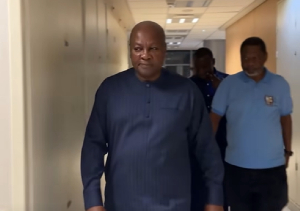In the age of social media, African artists in the diaspora have found a platform to connect with their home countries and speak about their experiences with their heritage. Many have told their stories through music, poetry and art of what they have encountered on account of being black.
And so it is for German-Rwandan Shavu Nsenga.
Nsenga, 24, is a singer-songwriter, poet, activist, community organizer and a budding entrepreneur. Through her music, she has gathered a following in Germany, where she was born, and in Rwanda, which she calls home. Born of a German mother and a Rwandan father, she grew up in a musical family that inspired her musical career.
“During Christmas, my German family and I always came together in a sort of family tradition. We sang, some played the piano and my aunt and I would play the flute. The flute was my first instrument. I started playing it when I was seven years old. Music was always around us and it always interested me,” she said.
Nsenga also played the flute as part of the school orchestra. She started singing after seeing her mother work with a vocal coach. She begged to tag along to the vocal training lessons. When her mother finally relented, the vocal coach advised her to enroll Nsenga in a choir where she could continuously practice.
Nsenga joined the choir, which reinforced her love for singing. She later joined the school band, and then a reggae group. With the reggae band, she got a lot of experience performing live music and creating music. But she had to leave the band when she moved to Cologne to study.
During her stint with the reggae band, her music tended to drift towards jazz. In Cologne, she started exploring her own sound and ended up at Loyal Records, her current record label.
Nsenga is currently studying social sciences, majoring in sociology at the University of Cologne. Her thesis research includes social networks and relationships particularly how exile of Rwandans in Uganda affects their social relationship today. The theme recurs in her music.
“My dad was always very proud to be Rwandan. He was also a diaspora child, who grew up in Uganda. And that thing of inherited pain, especially with the Rwandan diaspora, was always there. There is a lot that our parents could not and cannot talk about. My father probably never knew where to start. He would always say, ‘You guys were born here. Why should I tell you where I grew up and where your grandma grew up?’ It was hard for him to tell us about it until we came to Rwanda, and then Uganda in 2012. That is when he told us the stories properly,” Nsenga said.
For a long time, she could not grasp what being Rwandan meant. It had always puzzled her. Growing up in Germany, people had always asked her where she was from since she looked different. That constant feeling of having to defend herself and her existence had always troubled her.
Looking back at those years, Nsenga kept saying that she was Rwandan and African. She did not know what it meant to be African. All she had were memories of her playing in Nyamirambo when she was six years old. That was it. So, her solution was to come to Rwanda after finishing her ‘A’ levels, which she did.
She lived in Rwanda for a year, and since 2015 she has been visiting Rwanda at least once or twice in a year. Rediscovering her homeland made her feel comfortable and familiar with her roots. Her experiences inspired her seminal debut album In Our Art, which draws its title from a speech by African-American activist Angela Davis.
“In Our Art is actually a collection of songs over a period of a few years. This collection is like a window to my life, of what was going on inside me. A mix. It is about activism, which I do a lot in Germany. It is about what it is to be part of a community, finding healing in one another, living as part of the diaspora and inheriting another story.
“It is not really my story, but a story I inherited. Inherited pain, love and dreams. It is a combination of all this. The feeling of being tired of being an activist all day every day. Let us stay in, just for a day, and get some peace. It details what it is being a woman in certain situations. I just collected all those songs as a window to my life, especially my emotional life.”
Nsenga describes her music as neo-soul fused with R&B, hip-hop, jazz mixed with spoken word and a bit of reggae. She draws inspiration from luminaries like Miriam Makeba (who was her mothers’ favourite singer when she was pregnant with Nsenga), Khadja Nin, India Arie, Erkyah Badu and Alicia Keys. She credits them for teaching her how to be strong and thus identifies as an intersectional feminist.
“The song No on the album is basically about saying ‘no’. It narrates how ignoring ‘no’ can lead to gender-based violence. I believe that all the systems of oppression are intertwined. I believe in intersectional feminism, the way black women have made a path in terms of how we can talk about these things.
“I am tired of songs where men are just calling women bitches and whores, even though hip-hop has been its own social commentary, especially about black people. But then there is a lot of male dominance,” Nsenga said.
She is now setting up the Ntarama Creative Centre, which she hopes to launch before the end of the year. It will be a centre for all the creative arts. She set it up to give a platform for creative Rwandans.
The centre will teach music, creative writing, theatre, drama and dancing.
Africa Entertainment News of Sunday, 1 March 2020
Source: monitor.co.ug













